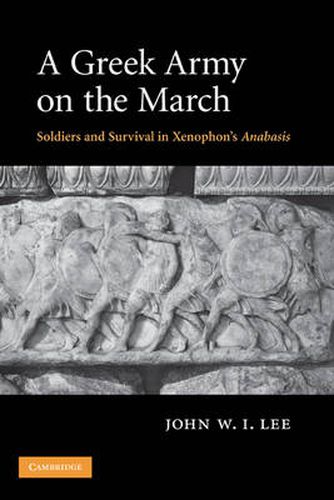Readings Newsletter
Become a Readings Member to make your shopping experience even easier.
Sign in or sign up for free!
You’re not far away from qualifying for FREE standard shipping within Australia
You’ve qualified for FREE standard shipping within Australia
The cart is loading…






Professor Lee provides a social and cultural history of the Cyreans, the mercenaries of Xenophon’s Anabasis. While they have often been portrayed as a single abstract political community, this book reveals that life in the army was mostly shaped by a set of smaller social communities: the formal unit organisation of the lochos (‘company’), and the informal comradeship of the suskenia (‘mess group’). It includes full treatment of the environmental conditions of the march, ethnic and socio-economic relations amongst the soldiers, equipment and transport, marching and camp behaviour, eating and drinking, sanitation and medical care, and many other topics. It also accords detailed attention to the non-combatants accompanying the soldiers. It uses ancient literary and archaeological evidence, ancient and modern comparative material, and perspectives from military sociology and modern war studies. This book is essential reading for anyone working on ancient Greek warfare or on Xenophon’s Anabasis.
$9.00 standard shipping within Australia
FREE standard shipping within Australia for orders over $100.00
Express & International shipping calculated at checkout
Professor Lee provides a social and cultural history of the Cyreans, the mercenaries of Xenophon’s Anabasis. While they have often been portrayed as a single abstract political community, this book reveals that life in the army was mostly shaped by a set of smaller social communities: the formal unit organisation of the lochos (‘company’), and the informal comradeship of the suskenia (‘mess group’). It includes full treatment of the environmental conditions of the march, ethnic and socio-economic relations amongst the soldiers, equipment and transport, marching and camp behaviour, eating and drinking, sanitation and medical care, and many other topics. It also accords detailed attention to the non-combatants accompanying the soldiers. It uses ancient literary and archaeological evidence, ancient and modern comparative material, and perspectives from military sociology and modern war studies. This book is essential reading for anyone working on ancient Greek warfare or on Xenophon’s Anabasis.